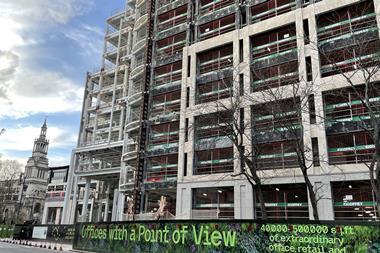Is it just me or is anyone else starting to get a distinct whiff of the emperor’s new clothes from build-to-rent?

Don’t get me wrong. I think it is part of the solution to the housing crisis, and as we prepare to celebrate the crème de la crème of the residential world at the RESI Awards next week, it is great to see MPs finally back it in a big way. But are people getting a tiny bit over excited?
Call me a cynic, but surely it is no great surprise that MPs have ditched the home-ownership rhetoric and are suddenly banging the BTR drum. Given the gloomy predictions that one in three millennials will never be able to afford to buy their own home (today’s graduates can’t even afford to rent in more than 60% of the country, according to the latest Propillo data), why back anything other than BTR, especially when the consensus is that it is a sector that is only set to grow in the next few years?
Savills predicts the BTR pipeline could double to 200,000 in the next two years. Planning policy is also increasingly supportive and councils are eyeing the sector with growing interest, which is bound to lead to more public-private partnerships undertaking BTR, not least because it provides them with a tidy long-term income stream.
Judging by all the noise around BTR, you’d think it was the panacea to all the housing sector’s ills. It isn’t. Regardless of the reframing of the debate to make BTR sound like a positive lifestyle choice for ‘free-wheeling, unmaterialistic’ millennials, the reality is that just because people can’t afford to buy their own home doesn’t mean they don’t want to or won’t want to at some point.
Danger on the horizon
Even if the future is rental, there is a danger on the horizon that could stop BTR in its tracks: interest rates. The success of BTR to date is largely predicated on low interest rates.
Rock-bottom rates since the financial crisis have fuelled demand for mortgages, sending house prices soaring beyond the reach of most young people, forcing them into the rental market. At the same time, low interest rates have made the secure income returns offered by BTR attractive to investors. If interest rates were to rise significantly, it would hypothetically make BTR less attractive as it would cause house prices to slump and aspiring homeowners to dump their rented homes in favour of home ownership.
Indeed, torpedoing conventional wisdom, Oxford Economics’ Ian Mulheirn goes so far as to argue that the housing crisis is all about interest rates and nothing at all to do with supply, which he contends is more than adequate, even in London, where the housing crisis is most acute. The inference is that we should all stop fixating on boosting delivery. What he doesn’t say is what we should focus on instead.
Answers on a postcard please, but one proposal I don’t think is going to make a blind bit of difference is giving millennials £10,000 each, as suggested by the think tank Resolution Federation this week, not given the level of student debt they’re carrying or the unaffordability of housing, to buy or rent. I never thought I’d say this, but I’m so glad I’m Generation X.































No comments yet